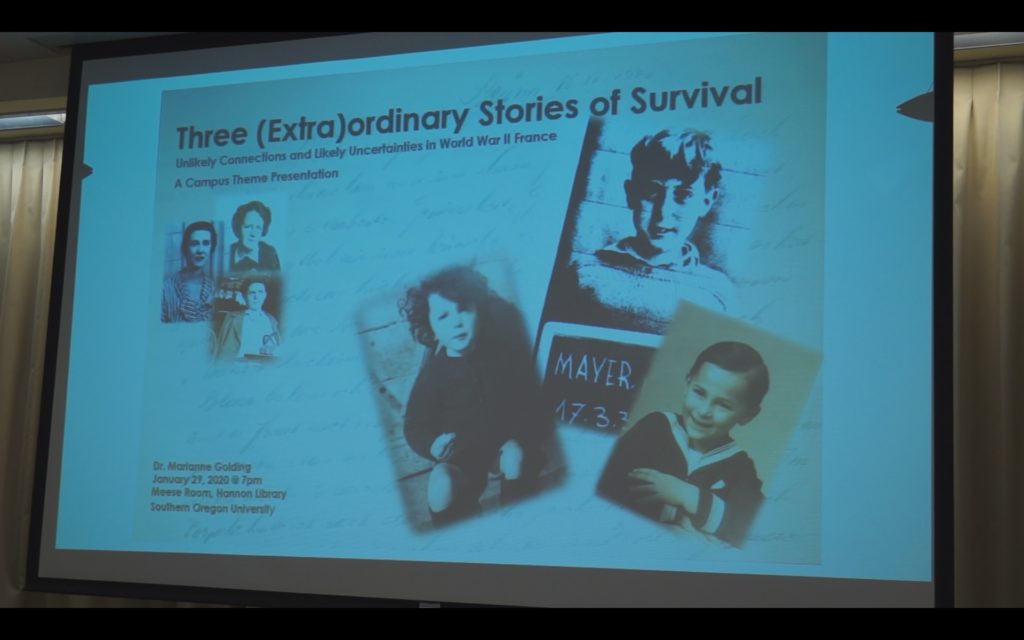On Jan. 29 in the Hannon Library, as part of the ongoing Campus Theme presentations, SOU’s own Dr. Marianne Golding presented the stories of her late father, who is of Jewish descent, and two other Jews who survived the Holocaust thanks to the generosity others, in a presentation titled “Three (Extra)Ordinary Stories of Survival”
Dr. Golding, who for her most of her life knew very little about her father’s experiences during the war, began researching it last year, at the age of fifty-seven. While teaching at a master’s program in France, Dr. Golding was about to go the Chezch Republic to begin her research, after having received letters and documents revealing some of her late father’s tragic past shortly after his death. With utterly no information on how to proceed and where to begin, she remembered from the limited stories she had been told, a single name – Chateau Larade – the name of the orphanage which sheltered her father as a young boy, and with this she quickly developed a foundation and her research took off.
While uncovering details of her father’s own story, she discovered two other survivors, who were linked together and to her father. The connection shared by the three survivors are that of fleeing to the same places. While uncovering the story, Dr. Golding came into possession of a variety of additional documents she “did know existed”, which not only prove the story, but detailed so much more. These documents allowed Dr. Golding to accurately pinpoint familial communications, movements, and even the extermination camps where much of her family and their friends would be systematically murdered for the crime of being Jewish.
The other two survivors, Menachem and Ron, are still alive today, and Dr. Golding had the luck to contact and meet with them while conducting her research.
Dr. Golding’s story, while not necessarily unique in terms of other stories of Holocaust survival, is unique to her, and deeply personal. This deeply personal nature, and the fact that even living Holocaust survivors often won’t talk about their experiences – much like Dr. Golding’s father – makes it naturally difficult to share with others. While Dr. Golding’s story is deeply personal to her, the most important aspect of it for her is the ability to “link it to the universal.” As she says, “All these other victims were just as much in pain, felt as much of a loss…”
Dr. Golding explained why she chose to share the story. “Ignored it for so long, the fact that I did not talk to my father about, the fact that it was time for me to look at that past and realize its part of my past too,” Dr. Golding said.
Sharing the story, as Dr. Golding puts it, is also part of “getting away from numbers,”. To her, and in fact, to many Holocaust survivors and the survivors of countless other human tragedies, every story counts. It is easy to simply think of the six million Jews that were murdered during the Holocaust, as well as the approximately five million Poles, Roma, homosexuals, Slavs, and other “untermensches,” but each and every single one of those eleven million men, women, and children have their own story, and so do their families.
Dr. Golding’s story, or rather, that of her father Edouard, Menachem, and Ron; and the courageous men and women who helped shelter them and preserve their lineage, is at the same time tragic, inspiring, heartbreaking, and uplifting. Three (Extra)Ordinary Stories of Survival has been one of the most thought provoking and universal presentations shared as part of SOU’s Campus Theme series, and I thank Dr. Golding for her courage in sharing her history.



